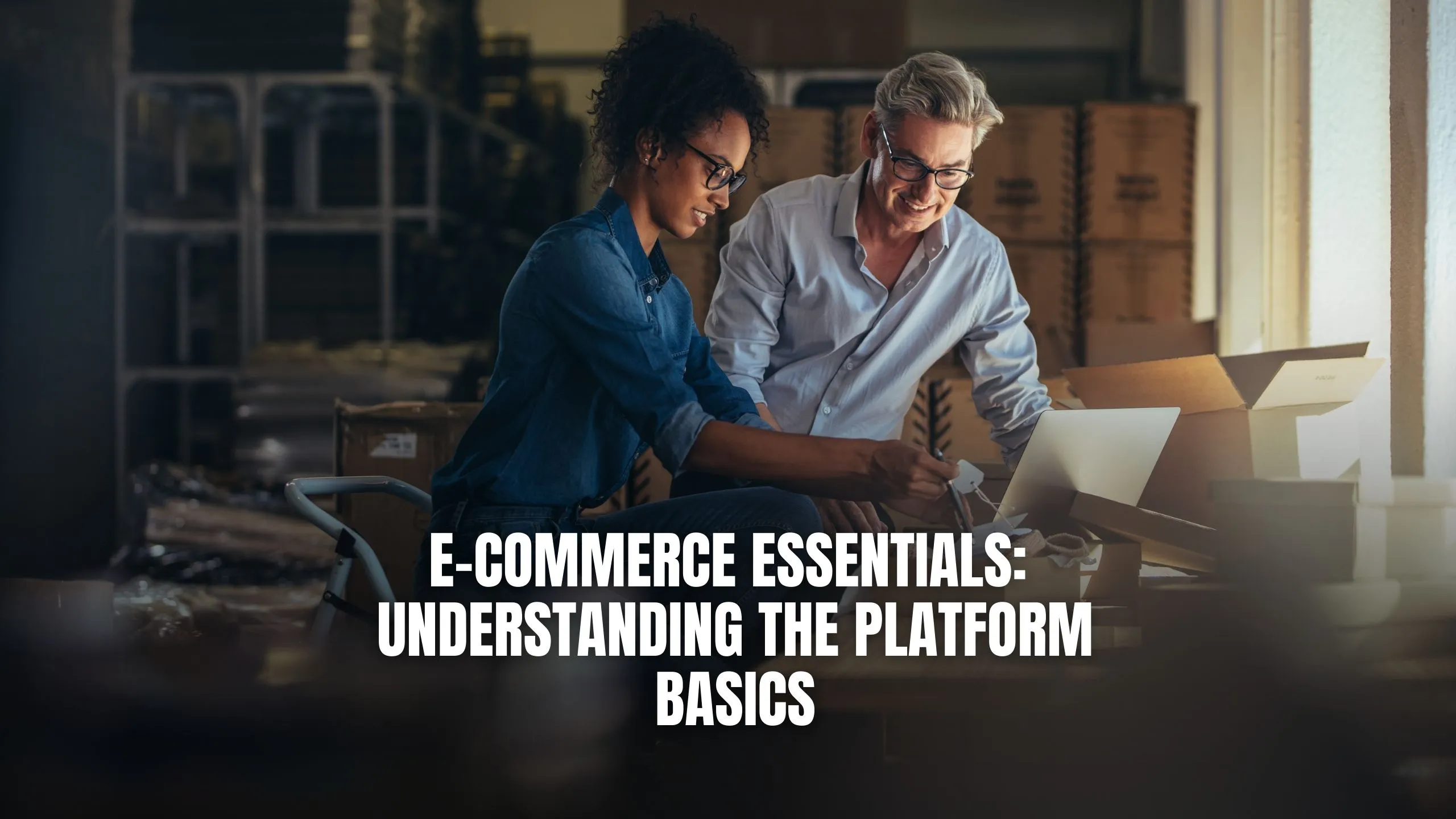E-commerce Essentials: Understanding the Platform Basics


E-commerce Essentials: Understanding the Platform Basics
In the fast-paced world of e-commerce, understanding the fundamentals of various platforms is essential for success. Whether you’re just starting out or looking to upgrade your existing platform, grasping the basics can help you make informed decisions and optimize your online store. Let’s dive into the essential aspects of e-commerce platforms to help you navigate this dynamic landscape.
1. Types of E-commerce Platforms
E-commerce platforms come in various forms, each catering to different business needs. There are hosted platforms like Shopify and BigCommerce, which provide all-in-one solutions with hosting included. These platforms are ideal for beginners or small businesses looking for simplicity and ease of use. On the other hand, there are self-hosted platforms like WooCommerce and Magento, which offer greater flexibility and customization but require more technical expertise to manage. These platforms are suitable for larger businesses or those with specific customization needs.
2. Key Features to Consider
When evaluating e-commerce platforms, it’s essential to consider the key features they offer. Look for platforms that provide robust inventory management, seamless payment processing, customizable themes, and responsive customer support. For example, imagine running a clothing store and needing to quickly update your inventory with new arrivals. A platform with intuitive inventory management features would allow you to do this effortlessly, ensuring that your customers always have access to the latest products.
3. Scalability and Growth Potential
As your business grows, scalability becomes a crucial factor in choosing an e-commerce platform. Opt for platforms like Wix and Squarespace that offer scalable solutions, allowing you to expand your store and add new features as your business evolves. Consider a scenario where your online store experiences a sudden surge in traffic during a holiday sale. A scalable platform would be able to handle the increased demand without crashing or slowing down, ensuring a smooth shopping experience for your customers.
4. Integration Capabilities
Integration capabilities are vital for seamlessly connecting your e-commerce platform with other tools and services. Choose platforms like Zapier and Integrately that offer extensive integration options, allowing you to automate tasks, sync data, and streamline workflows. For instance, imagine running a marketing campaign and needing to sync customer data from your e-commerce platform to your email marketing software. An integrated platform would allow you to do this automatically, saving you time and effort while ensuring consistency across your marketing channels.
5. Affordability and Pricing
Affordability is a significant consideration when choosing an e-commerce platform, especially for small businesses and startups. Look for platforms like Ecwid and Square Online that offer flexible pricing plans and scalable solutions to accommodate your budget and business needs. Consider a scenario where you’re just starting your online business and operating on a limited budget. An affordable platform with transparent pricing and no hidden fees would allow you to launch your store without breaking the bank, giving you the flexibility to invest in other areas of your business.
Recommended Saas Products:
- Shopify: A versatile platform offering customization and flexibility to create a unique online store that reflects your brand’s identity.
- BigCommerce: Scalable e-commerce solution equipped with features to support your business’s growth without compromising performance.
- WooCommerce: Robust e-commerce plugin for WordPress, offering extensive resources and community support for building and managing online stores.
- Zapier: Automation platform that allows you to connect your e-commerce platform with other tools and services to streamline workflows and improve efficiency.
- Ecwid: E-commerce platform that seamlessly integrates with your existing website or social media profiles, making it easy to start selling online.
Conclusion
Understanding the basics of e-commerce platforms is crucial for building and managing a successful online store. By considering factors such as platform types, key features, scalability, integration capabilities, and affordability, you can make informed decisions and choose the right platform that aligns with your business goals and objectives.
Unlock Your E-commerce Potential Today!
Ready to take your e-commerce business to new heights? Discover exclusive deals on essential SaaS tools with Subscribed.fyi. Sign up for free today to access savings on top-notch solutions tailored to meet the needs of your online store. Simplify your e-commerce journey and unlock the potential for growth and success!
Relevant Links:








